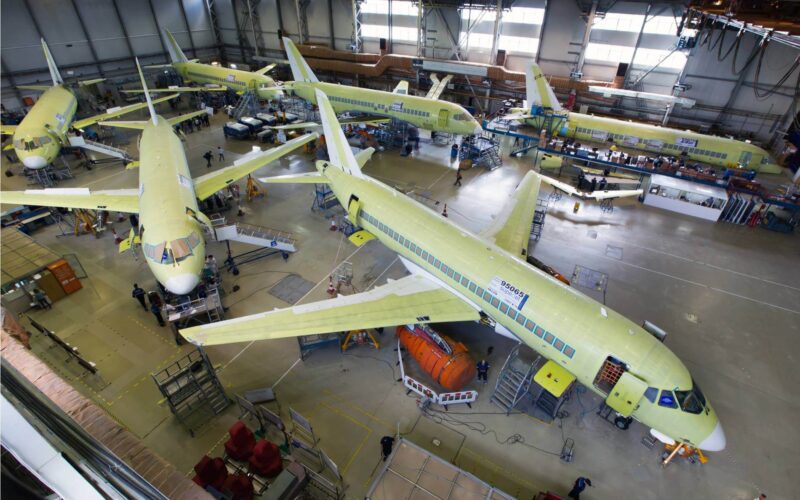Putin displeased with 2023 aircraft orders, clashes with Minister of Trade

The finalization of aircraft orders from Russian aviation manufacturers for 2023 is not moving forward fast enough, the country’s president Vladimir Putin said during a government meeting.
Putin expressed his discontent after Russia’s Minister of Trade and Industry, Denis Manturov provided a report on the current situation in the country’s commercial aviation and shipbuilding sectors.
‘Fooling about’
Putin commented that it is unclear how many of the Russian-made aircraft slated for delivery in 2023 and mentioned in Manturov’s report, are intended for the civilian market and how many for the Ministry of Defense.
In response, Manturov said that the numbers are already laid out and they depend on the limited capacity of engine manufacturing.
According to a transcript of the meeting, published on the website of the presidential administration Putin said: “Long! Too long. The companies have to understand their perspectives, their orders. They have to hire the workforce, they have to keep or increase manufacturing capacities, understand? They have to know how many [aircraft] the military is going to order, how many civilian aircraft are going to be ordered. Some companies don’t even have orders for 2023.”
A short back-and-forth then ensued, with Manturov reiterating that the order numbers are laid out and Putin repeating that the orders have not yet been signed.
“Denis Valentinovich, [you say that] everything is laid out, but there are no contracts. I say this again. Let’s [discuss that] later, let’s finish the meeting now. Why are we bickering here? I know that the companies don’t have orders, the directors told me. Really, why are you fooling about? When will we have the contracts? That’s what I am talking about. The directors of the companies are telling me: there are no contracts. And it’s all ‘laid out’ for you,” Putin continued.
Responding to this, Manturov reiterated that the numbers are known and technical certificates, required to procure funding for the orders, will be prepared within the next quarter of 2023.
“Do it in a month, I am asking you. In a month, everything have to be done. A quarter? What are we talking about? Don’t we understand what conditions are we living in? I am asking you to do it within a month. Clear?” Putin said.
After Manturov responded that he and his colleagues are going to “try doing everything they can” Putin interrupted him once again, saying: “Don’t try doing everything you can, just do it, please.”
The public scolding received by Manturov during the meeting has received significant attention across Russian media.
According to Russian state news agency TASS, Putin’s press secretary Dmitry Peskov later commented that the scolding was a part of a “regular work process” and Putin is not displeased with Manturov’s performance.
Ambitious plans
In his report to Putin, Manturov said that more than 700 Russian-made aircraft will be delivered by 2030. This differs from other figures floated by officials. For example, in June 2022 Manturov said Russian manufacturers will produce more than 1,000 civilian airplanes and 760 civilian helicopters in 2030, and in June 2022, the head of state conglomerate Rostec, Yury Chemezov, said that the country would produce more than 500 aircraft by 2030.
These differing accounts support Putin’s remarks that orders have not yet been placed and the exact numbers are currently unclear.
While followed up by some widely covered announcements, such as Aeroflot signing an agreement to purchase 339 domestically manufactured airliners on September 7, 2022, overall production plans do not seem to not be tied to manufacturing capacities or acquisition plans.
Many analysts have argued that those production plans are overly ambitious and Russia’s aerospace manufacturers are hardly capable of following up on the political decision to transition to domestic aircraft.
There have been multiple reports of United Aircraft Corporation (UAC) not meeting delivery deadlines in recent months, as well as delivering old refurbished aircraft instead of new ones and reactivating previously-decommissioned airliners.
